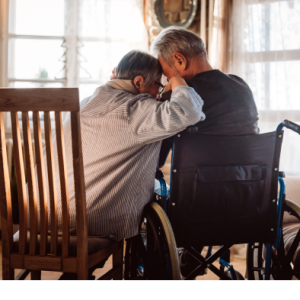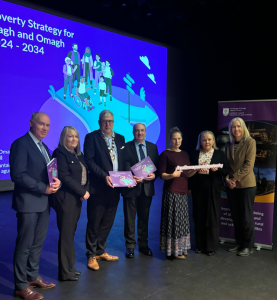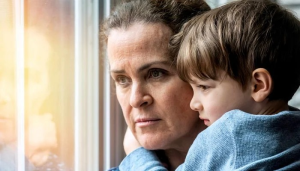Women’s Experiences of the Cost-of-Living Crisis
Research by Siobhán Harding, Dr Alexandra Chapman & Dr Ciara Fitzpatrick
On behalf of the Women’s Regional Consortium
Women are often described as acting as the “shock absorbers” of poverty in the home, going without food, heat and clothing to protect their children and other family members from the impacts of poverty when money is tight.
Economic crises tend to hit women hardest and the Cost-of-Living Crisis is no different. The current situation for those in most need is dire with significant concerns around rising levels of debt, poverty and destitution.
This led the Women’s Regional Consortium to carry out research with 250 low income women in Northern Ireland on their experiences of the Cost-of-Living Crisis and its impact on their lives and families. The findings of this research paint a stark picture of women’s lives which are increasingly occupied with hunger, cold, debt, anxiety and concerns about the outlook for themselves and their children, with little hope of positive change on the horizon.
Main Findings:
- 91% said they had difficulty paying their bills as a result of Cost-of-Living increases.
- 75% said they were having the most difficulty paying for their food shopping, 73% said electricity, 52% gas, 38% travel costs, 34% internet bills, 30% home heating oil and 27% school costs.
- 56% were in debt and of these 82% said they had to borrow as a result of Cost-of-Living increases.
- 90% felt that the Cost-of-Living Crisis had impacted on their physical or mental health or both.
- Of those who had children, 78% felt that Cost-of-Living increases had negatively impacted on their children.
- 92% reported that Cost-of-Living increases had negatively impacted on their ability to take part in social activities.
- 78% said they felt cold or hungry or both as a result of Cost-of-Living increases.
- 41% needed to use a foodbank/other charitable support
due to increases in the Cost-of-Living.
Urgent Action is needed
KEY PRIORITY 1:
Women’s Centres provide trusted, local spaces for women to access help and support to address financial vulnerability and poverty in ways that work best for them. We recommend that Government should provide a long-term sustainable funding model which recognises the significant return on investment that Women’s Centres provide. This would enable them to continue and develop the vital services they provide.
Without Atlas Women’s Centre I don’t know where I’d be. It’s literally a godsend. At Christmas they helped me with food and toy parcels. They were able to give me vouchers for heating and electric too.
I come to Chrysalis Women’s Centre so I’m not putting my own heat on. I’m very grateful to the Centre it provides amazing support to me both in the things they do and being able to come here. It’s a safe and welcoming space.
KEY PRIORITY 2:
The Holiday Hunger Scheme needs to be urgently reinstated to mitigate against food insecurity for women and children during the upcoming summer holiday period. The Healthy Start Scheme needs to be increased in line with inflation and those who are entitled should be automatically enrolled onto the scheme.
For food shopping I’m cutting out a lot of things I used to buy. We’re not eating as healthy because I have to buy cheaper food. I’m buying frozen stuff and putting it in the freezer. I’m shouting at the kids for eating and it’s awful. The Healthy Start card isn’t enough. £17 doesn’t cover what you need. In some places baby formula is £17.50.
I didn’t realise about Healthy Start – I was entitled to help from early in my pregnancy but I can’t get it backdated now. No one told me I could be getting extra money.
KEY PRIORITY 3:
The Cost-of-Living Crisis has compounded the existing crisis in mental health, as women lose opportunities for social connection and peer support due to a lack of money. There is an urgent need to invest in services to prevent long term mental illness and loss of life.
Anxiety, sleeplessness, stress, panic attacks. Due to constantly having the thought in your head about the next meal and worrying if the gas or electric is going to run out. My anxiety has increased and my anti-depressants have been increased. There is constant worry, I am stressed all the time.
KEY PRIORITY 4:
The School Uniform Grant needs to be increased to reflect the average cost of a school uniform (including PE kit) which would move it closer in line with other countries in the UK. The grant should also include an allowance for school shoes.
I had to use a credit card for the kid’s school uniform this year. I struggled to pay their school uniform worse this year than any time before. The grant for a school uniform doesn’t go anywhere near the actual costs. My son needs a new school uniform every day as he has sensory issues and there are a lot of changes. I had to buy all his school uniform, shoes, PE kit, school bag and contents. It was £345 for primary school. I literally broke down in tears because I had to get for my daughter as well and she is in
secondary school.
KEY PRIORITY 5:
We support the recommendations from the Independent Review of Discretionary Support and want to see increased investment in this vital fund to address rising levels of financial hardship and the impact of the Cost-of-Living Crisis.
I’m borrowing off friends and family and then Discretionary Support. I’m constantly limited out of it. I had £400 saved and I had to go into it, it’s gone. I put it away as a fund for my oldest. It’s horrible going into your kid’s money, I feel so guilty about it but we had to eat.
It’s the everyday basics that you need to get yourself through. It’s essential to have toilet roll so you’ve no choice but to buy it. It’s not luxuries it’s the things people need to live and survive that are going up so much.
Download the full report below or read more about the research here.







